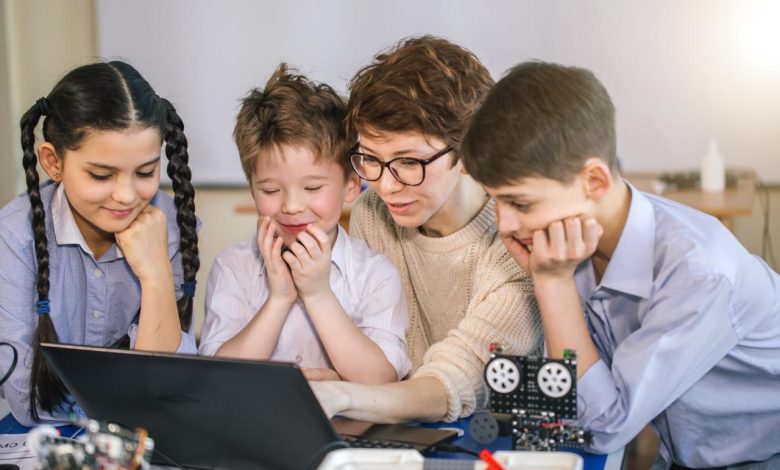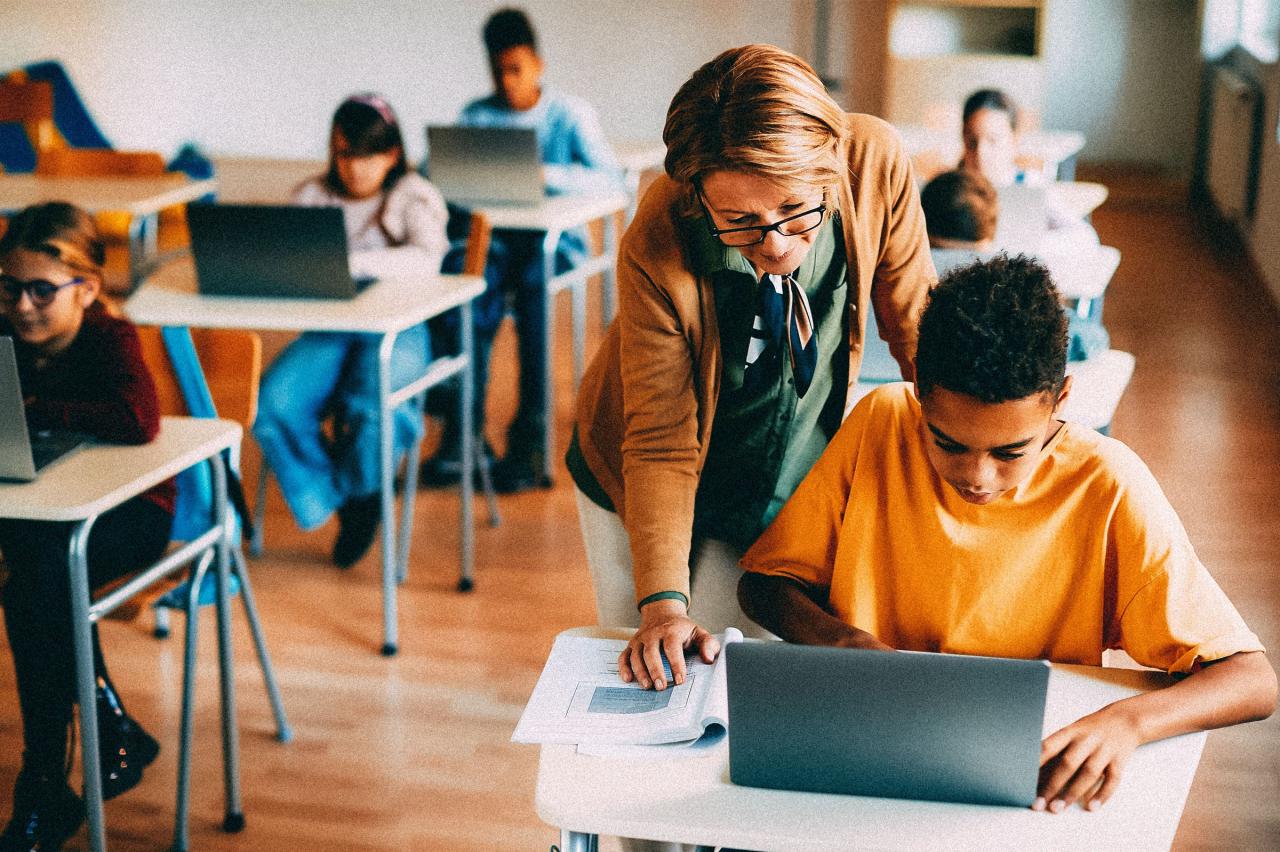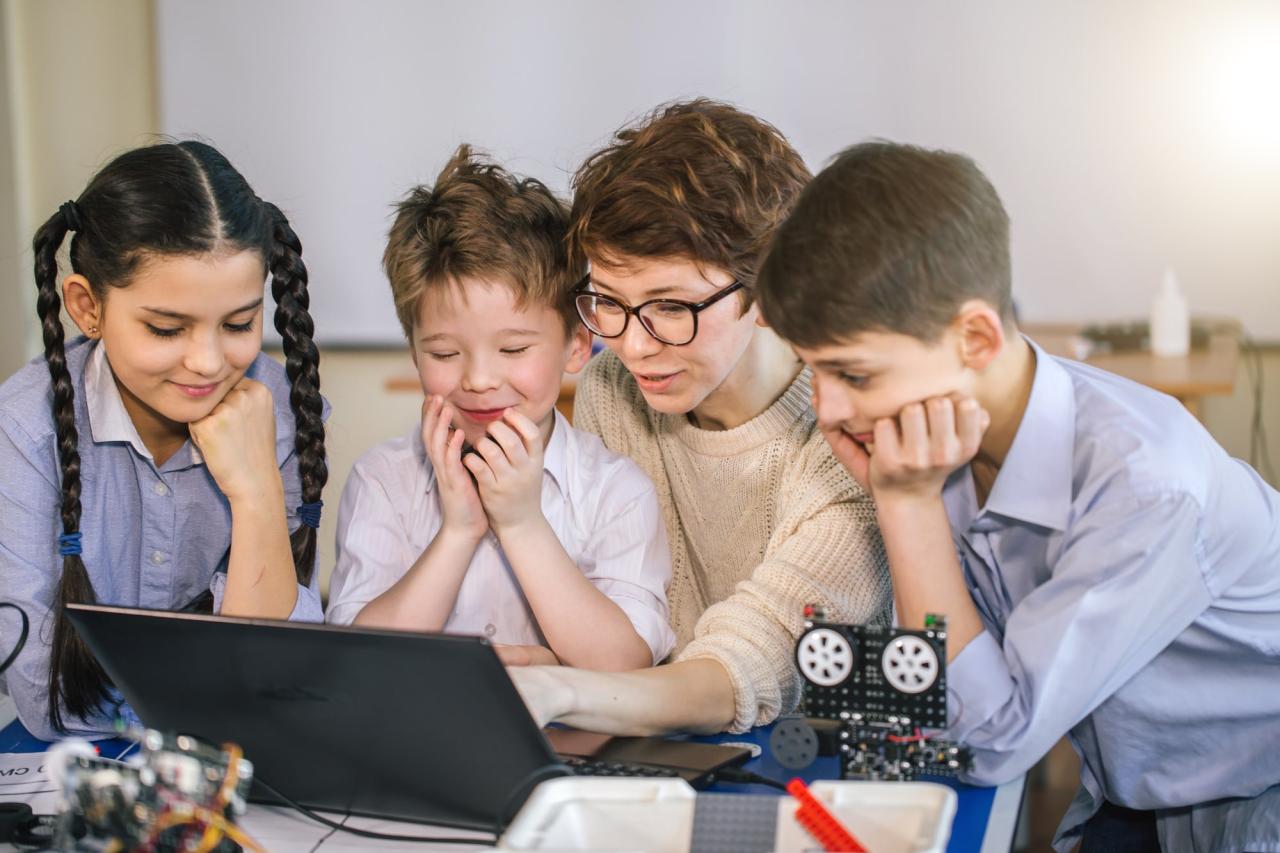The Importance Of Soft Skills In Modern Education

The Importance of Soft Skills in Modern Education cannot be overstated, as these essential competencies complement academic knowledge and are vital for holistic development. In an era where the job market is constantly evolving, the ability to communicate effectively, collaborate with others, and demonstrate emotional intelligence is becoming increasingly significant. This blending of soft skills with traditional educational frameworks not only enhances students’ academic success but also prepares them for the complexities of the modern workforce.
Soft skills encompass a range of interpersonal abilities, such as teamwork, problem-solving, and adaptability, which are crucial in both academic settings and future employment. By prioritizing the development of these skills, educators can help students thrive in collaborative environments and navigate challenges with confidence. As educational institutions recognize the value of soft skills, integrating them into the curriculum becomes essential for nurturing well-rounded graduates.
The Definition of Soft Skills

Soft skills represent a critical component of an individual’s competencies, complementing the technical abilities known as hard skills. While hard skills refer to the specific, teachable abilities or knowledge sets, such as mathematics, programming, or proficiency in a foreign language, soft skills encompass interpersonal attributes that influence how individuals interact with others. These skills are vital in fostering effective communication, collaboration, and conflict resolution in educational settings and beyond.
Soft skills can be categorized into various types, each essential in shaping a well-rounded education experience. Examples of soft skills relevant to education include:
- Communication Skills: The ability to convey information clearly and effectively, both verbally and in writing.
- Teamwork: The capacity to work collaboratively with peers and educators to achieve common goals.
- Problem-Solving: The skill of identifying issues and developing effective solutions.
- Adaptability: The ability to adjust to new conditions and challenges in an ever-changing educational landscape.
- Time Management: The skill of organizing and prioritizing tasks efficiently.
Each of these skills serves a significant purpose in enhancing the learning environment and preparing students for future challenges. Emotional intelligence is one of the most crucial soft skills that plays a pivotal role in this context.
Emotional Intelligence as a Crucial Soft Skill
Emotional intelligence (EI) refers to the ability to recognize, understand, and manage one’s own emotions while also being able to empathize with others. In the realm of education, emotional intelligence is significant as it fosters a supportive learning environment and enhances relationships among students and teachers.
The importance of emotional intelligence in education can be illustrated by the following key aspects:
- Self-Awareness: Recognizing one’s emotions helps students identify their strengths and weaknesses, leading to personal growth.
- Self-Regulation: The ability to manage emotions encourages students to respond constructively to stress and adversity.
- Empathy: Understanding the feelings of others promotes collaboration and reduces conflicts in group settings.
- Social Skills: Strong emotional intelligence enhances teamwork and communication, facilitating better group projects and classroom discussions.
- Motivation: Emotionally intelligent individuals tend to be more resilient, maintaining a positive outlook even in challenging situations.
Incorporating emotional intelligence into educational curricula can lead to improved academic performance and better interpersonal relationships, ultimately preparing students for success in their future careers and personal lives.
The Role of Soft Skills in Academic Success
The integration of soft skills into education is increasingly recognized as essential for fostering academic achievement. These skills, encompassing communication, teamwork, adaptability, and emotional intelligence, play a pivotal role in enhancing students’ learning experiences and outcomes. By developing these competencies, students are better equipped to navigate the complexities of academic environments and contribute meaningfully to collaborative efforts.
The contribution of soft skills to overall academic performance is profound. Students who possess strong interpersonal skills tend to excel in collaborative learning situations and exhibit greater engagement in their studies. Effective communication allows them to articulate their thoughts and ideas clearly, leading to improved interactions with peers and educators. Furthermore, the ability to adapt to changing circumstances and manage stress can significantly enhance a student’s overall academic resilience.
Influence of Teamwork and Collaboration on Student Outcomes
Teamwork and collaboration are integral components of academic success, fostering an environment where students can learn from each other and share diverse perspectives. The ability to work effectively in teams not only enhances the learning experience but also prepares students for future professional environments. The following points illustrate how teamwork and collaboration translate into positive academic outcomes:
- Enhanced Learning Opportunities: Collaborative projects enable students to engage with the material more deeply, encouraging critical thinking and innovation through shared knowledge.
- Improved Communication Skills: Working in teams helps students refine their ability to convey ideas and constructive feedback, which is essential for both academic and professional success.
- Development of Leadership Qualities: Participation in group work allows students to take on various roles, helping them cultivate leadership and responsibility within team settings.
- Increased Motivation and Accountability: When working with peers, students are often more motivated to perform well and hold each other accountable for their contributions.
Soft skills such as critical thinking and problem-solving are crucial in academic settings, particularly in subjects that demand higher-order thinking. These skills empower students to analyze information critically, evaluate different viewpoints, and arrive at reasoned conclusions. Examples include:
“Critical thinking involves not just the ability to think, but to think critically.” – Richard Paul
- Active Listening: By listening attentively to peers during discussions, students can better understand various perspectives, which is vital for effective problem-solving.
- Creativity: The ability to think outside the box allows students to devise innovative solutions to complex problems, enhancing their academic work.
- Emotional Intelligence: Understanding and managing emotions helps students navigate conflicts and build stronger relationships, essential for effective teamwork.
- Analytical Skills: The capacity to assess data and evidence critically enables students to tackle academic challenges with a systematic approach.
Soft Skills in the Classroom Environment: The Importance Of Soft Skills In Modern Education
In modern education, the classroom environment serves as a pivotal platform for nurturing not only academic abilities but also essential soft skills. These skills, which include teamwork, communication, and emotional intelligence, significantly impact students’ overall development and future success. Integrating soft skills into the curriculum creates a dynamic learning atmosphere that encourages personal growth and prepares students for real-world challenges.
Effective methods for incorporating soft skills training into the classroom curriculum involve a strategic approach that emphasizes interactive learning. Educators can introduce project-based learning, which requires students to collaborate and communicate effectively to achieve common goals. This experiential approach not only facilitates the development of soft skills but also enhances academic learning through practical application.
Integration Methods for Soft Skills Training
There are various methods educators can adopt to seamlessly integrate soft skills training into their existing curriculum. These methods not only enhance student engagement but also prepare them for collaborative work environments.
- Group Projects: Assigning group projects encourages students to work together, requiring them to negotiate roles, share responsibilities, and resolve conflicts, thus enhancing their teamwork abilities.
- Peer Teaching: Allowing students to teach each other promotes communication skills and deepens their understanding of the subject matter, fostering a supportive learning environment.
- Reflection Activities: Implementing regular reflection sessions helps students develop self-awareness and emotional intelligence by encouraging them to analyze their interactions and learning experiences.
Creating a collaborative learning atmosphere is crucial for fostering soft skills among students. Teachers play a significant role in establishing an environment where students feel safe to express their thoughts and ideas.
Strategies for Fostering Collaborative Learning Atmosphere
Establishing a collaborative learning environment involves conscious strategies that promote mutual respect and open communication among students.
- Encouraging Open Dialogue: Facilitating discussions where all students feel valued encourages diverse perspectives and enhances critical thinking.
- Setting Clear Expectations: Clearly defined roles and responsibilities within group activities help students understand their contributions and promote accountability.
- Cultivating Inclusivity: Creating an inclusive environment where every student’s voice is heard helps build a sense of community, essential for effective teamwork.
The ability to communicate effectively is paramount in student presentations and discussions. These settings not only require clear articulation of ideas but also the ability to listen and respond thoughtfully to feedback.
Importance of Communication Skills in Presentations and Discussions
Communication skills are fundamental in students’ academic journeys, particularly during presentations and collaborative discussions. They enable students to convey their ideas persuasively and engage critically with their peers.
- Articulation of Ideas: Mastering the ability to present ideas clearly allows students to share their knowledge confidently and engage their audience.
- Active Listening: Being able to listen attentively is crucial for effective communication, as it enables students to respond appropriately and build upon others’ contributions.
- Constructive Feedback: Encouraging students to give and receive feedback fosters an environment of continuous improvement, enhancing their ability to communicate effectively in future scenarios.
Preparing Students for the Workforce

In today’s dynamic job market, the significance of soft skills cannot be overstated. While traditional academic skills such as mathematical proficiency and literacy remain vital, employers now prioritize a candidate’s ability to communicate effectively, collaborate with teams, and adapt to changing circumstances. This shift emphasizes the need for educational institutions to integrate soft skills training into their curriculum, ensuring that students are not only knowledgeable but also equipped to excel in their future workplaces.
The modern workforce is characterized by rapid advancements in technology and an increasingly interconnected global economy. Employers are increasingly seeking individuals who can navigate complex interpersonal dynamics and contribute positively to organizational culture. Research indicates that 92% of employers consider soft skills to be equally important, if not more so, than hard skills when making hiring decisions. This highlights the critical role soft skills play in enhancing employability and fostering career advancement.
Soft Skills Valued by Employers
Understanding the specific soft skills that employers value across various industries is essential for students preparing to enter the workforce. The following list Artikels key soft skills that are consistently sought after:
- Communication Skills: The ability to articulate thoughts clearly and listen actively is crucial in any professional environment.
- Teamwork and Collaboration: Working effectively with others is vital, as most roles require some degree of collaboration.
- Problem-Solving Skills: Employers value individuals who can think critically and approach challenges with innovative solutions.
- Adaptability: The capacity to adjust to new situations and demands is increasingly important in a fast-paced job market.
- Emotional Intelligence: Understanding and managing emotions, both one’s own and those of others, can significantly enhance workplace relationships.
- Time Management: The ability to prioritize tasks and manage time efficiently is essential for meeting deadlines and achieving goals.
- Leadership Skills: Even entry-level positions require some level of leadership, whether in guiding a project or influencing team dynamics.
In addition to these general skills, certain industries may emphasize specific soft skills. For example, the healthcare sector highly values empathy and communication, while technology firms may prioritize adaptability and problem-solving skills. This demonstrates the importance for students to tailor their soft skill development based on their chosen career paths.
“The soft skills gap is a critical issue—employers are struggling to find candidates who can connect, communicate, and collaborate effectively.”
Assessment of Soft Skills
Assessing soft skills in students is crucial for fostering their interpersonal development and ensuring they are well-equipped for future challenges. Unlike traditional academic skills, soft skills are often more subjective and can be challenging to measure. However, various effective methods can be employed to assess these essential abilities.
To evaluate the soft skills of students, educators can utilize a combination of quantitative and qualitative assessment methods. This multifaceted approach allows for a more comprehensive understanding of a student’s interpersonal capabilities.
Assessment Methods for Soft Skills
Various techniques can be utilized to assess soft skills effectively. Here are several noteworthy methods:
- Peer Evaluations: Students can assess each other’s contributions in group projects, providing feedback on collaboration and communication skills.
- Self-assessments: Students reflect on their own soft skills development through structured questionnaires or reflective journals, promoting self-awareness.
- Behavioral Observations: Educators can observe students during group activities or discussions to assess their teamwork, leadership, and conflict resolution skills.
- Role-Playing Activities: Simulated scenarios can be created where students must navigate interpersonal challenges, allowing educators to evaluate critical thinking and emotional intelligence.
- Project-Based Assessments: Assigning complex projects that require collaboration helps evaluate a range of soft skills, from communication to problem-solving.
The implementation of these assessment methods allows educators to gather diverse insights into a student’s soft skills, ensuring a holistic view of their interpersonal capabilities.
Activities to Evaluate Interpersonal Skills, The Importance of Soft Skills in Modern Education
Specific activities can be particularly effective in assessing students’ soft skills. Here are a few examples that can be integrated into the curriculum:
- Group Discussions: Facilitating structured group discussions on relevant topics encourages students to articulate their thoughts, listen actively, and engage in constructive debate.
- Team Projects: Assigning tasks that require collaboration among students helps assess their ability to work as part of a team, share responsibilities, and resolve conflicts.
- Feedback Circles: Creating opportunities for students to give and receive feedback in a supportive environment enhances communication and critical thinking skills.
- Public Speaking Exercises: Encouraging students to present their ideas in front of peers develops their confidence and ability to convey messages effectively.
- Community Service Projects: Involving students in community service helps them understand teamwork, empathy, and the importance of social responsibility.
These activities not only provide valuable insights into student interpersonal skills but also promote a culture of collaboration and respect.
Feedback Mechanisms for Enhancing Soft Skills
Effective feedback mechanisms are essential in the development of soft skills. Continuous and constructive feedback can significantly enhance students’ learning experiences.
Educators can implement several strategies to facilitate meaningful feedback on soft skills development:
- Regular Feedback Sessions: Schedule periodic one-on-one meetings to discuss students’ progress and areas for improvement, fostering an open dialogue.
- Rubrics for Feedback: Create clear rubrics that Artikel expectations for soft skills in various activities, allowing students to understand how they are evaluated.
- Peer Feedback Integration: Encourage students to provide feedback to one another, promoting a collaborative learning environment and reinforcing their critical thinking skills.
- Reflective Journals: Encourage students to keep journals where they can reflect on their experiences and the feedback received, helping them track their growth over time.
- Parent Involvement: Engage parents in the feedback process by sharing assessments of their child’s soft skills, fostering a supportive home environment for development.
By employing these feedback mechanisms, educators can not only assess but also significantly enhance the soft skills of their students, preparing them for success in both academic and professional spheres.
Challenges in Teaching Soft Skills
The teaching of soft skills presents a myriad of challenges that educators must navigate to effectively prepare students for the complexities of modern life. These obstacles can range from curricular constraints to the varying levels of student engagement. Understanding these challenges is critical for educators who aim to integrate soft skills into their teaching methodologies.
One significant challenge in teaching soft skills is the difficulty in measuring and assessing these intangible qualities. Unlike hard skills, which can be evaluated through standardized tests or practical exams, soft skills such as empathy, teamwork, and communication are often subjective and context-dependent. This ambiguity can lead to hesitation among educators in fully committing to soft skills training.
Common Obstacles Faced by Educators
Several common obstacles hinder the effective teaching of soft skills in educational settings. These include:
- Lack of Training: Many educators are not adequately trained to teach soft skills, leading to a reliance on traditional lecture-based methods that do not foster these attributes.
- Curricular Constraints: Standardized curricula often prioritize academic knowledge over soft skills, leaving little room for meaningful integration.
- Student Resistance: Some students may view soft skills training as less important than academic subjects, resulting in disengagement and a lack of participation.
- Assessment Challenges: The difficulty in measuring soft skills can create uncertainty regarding their effectiveness and the need for dedicated assessment methods.
To effectively overcome these obstacles, educators can implement several strategies. First, professional development workshops focused on soft skills can equip teachers with the necessary tools and techniques to integrate these skills into their lesson plans. Additionally, creating a classroom environment that encourages collaboration and open communication can cultivate an appreciation for soft skills among students.
Strategies for Overcoming Teaching Challenges
To address the challenges of teaching soft skills effectively, the following strategies can be employed:
- Interactive Learning: Incorporating role-playing, group projects, and peer feedback can enhance engagement and provide students with hands-on experience in developing soft skills.
- Real-World Applications: Integrating case studies and scenarios that reflect real-world situations can help students understand the practical importance of soft skills.
- Mentorship Programs: Pairing students with mentors from various industries can provide exposure to soft skills in action and highlight their relevance in the workforce.
- Use of Technology: Digital platforms and simulations can offer innovative ways to practice and assess soft skills in a safe environment.
Successful Case Studies
Examining successful initiatives can provide valuable insights into effective soft skills training. One notable example is a program implemented at a high school in California, which integrated soft skills training into its STEM curriculum. By utilizing project-based learning, students worked collaboratively on real-world problems that required effective communication and teamwork. This initiative resulted in improved student engagement and marked enhancement in their soft skills, as evidenced by peer assessments and feedback from local businesses who noted the readiness of graduates for the workforce.
Another compelling case is the implementation of a soft skills curriculum at a community college in New Mexico, where students participated in workshops that emphasized conflict resolution and emotional intelligence. The college reported a significant increase in student retention rates and job placement success following the program’s introduction, underscoring the importance of soft skills in academic and professional settings.
These experiences highlight that while challenges exist in teaching soft skills, proactive strategies and successful case studies demonstrate that it is possible to effectively integrate these essential skills into education.
The Future of Soft Skills in Education
The landscape of education is continuously evolving, with an increasing recognition of the importance of soft skills. As educational institutions adapt to new societal demands, the emphasis on soft skills is becoming more pronounced. This shift highlights the necessity for students not only to acquire academic knowledge but also to develop interpersonal capabilities essential for their future success.
Emerging trends indicate that soft skills will play a pivotal role in shaping educational practices. The integration of soft skills into the curriculum is expected to enhance collaborative learning and emotional intelligence among students. As the workforce increasingly demands adaptability, creativity, and effective communication, educational systems are responding by embedding these competencies into various subjects and activities.
Impact of Technology on Soft Skills Development
Technology has significantly influenced the development of soft skills in students. Digital platforms facilitate collaborative projects that foster teamwork and communication. For instance, cloud-based tools allow students to work together in real-time, regardless of their physical locations. This technological integration encourages learners to engage in constructive dialogue and problem-solving, essential components of soft skills.
Moreover, technology enables the use of gamification in education, creating immersive experiences that enhance critical thinking and adaptability. Through interactive simulations and role-playing games, students are exposed to real-world scenarios that require them to exercise their soft skills in a safe environment. This experiential learning approach not only makes learning more engaging but also equips students with the skills necessary to navigate complex interpersonal dynamics in the workplace.
Projections on the Evolving Role of Soft Skills
Looking ahead, the role of soft skills in education is projected to grow in significance. As the job market increasingly prioritizes emotional intelligence alongside technical skills, educational institutions are likely to prioritize soft skill development in both teaching methodologies and assessment criteria.
Examples of future educational practices may include:
- Curricular reforms that integrate soft skills training with academic subjects, ensuring a holistic education that prepares students for diverse challenges.
- Innovative assessment techniques that evaluate students’ soft skills through peer reviews, self-assessments, and group projects, shifting the focus from traditional testing methods.
- Increased partnerships between schools and businesses to provide students with real-world experiences that highlight the importance of soft skills in various professional environments.
The emphasis on soft skills is essential for preparing students for a rapidly changing world where effective communication, collaboration, and adaptability are paramount. As educational institutions embrace these changes, they will play a crucial role in shaping well-rounded individuals equipped to thrive in their future careers.
Epilogue
In conclusion, the discussion on The Importance of Soft Skills in Modern Education highlights the transformative impact these skills have on students’ academic performance and career readiness. As we move forward, it is imperative that educators embrace innovative teaching strategies to incorporate soft skills into their programs. By doing so, they will not only enhance students’ learning experiences but also equip them with the necessary tools to succeed in a complex and dynamic world.
FAQ Overview
Why are soft skills important for students?
Soft skills are crucial for students as they enhance interpersonal relationships, improve communication, and foster collaboration—key elements for academic and professional success.
How can schools effectively teach soft skills?
Schools can teach soft skills through group projects, role-playing activities, and incorporating feedback mechanisms that encourage self-reflection and improvement.
What is the difference between soft skills and hard skills?
Soft skills are interpersonal and communication abilities, while hard skills are specific technical proficiencies or knowledge related to a particular task or job.
What role does emotional intelligence play in education?
Emotional intelligence is essential in education as it helps students manage their emotions, understand others, and navigate social complexities, fostering a supportive learning environment.
How do employers view soft skills compared to academic qualifications?
Employers increasingly prioritize soft skills over academic qualifications, as they are often indicative of a candidate’s ability to work well in teams and adapt to changing workplace dynamics.







